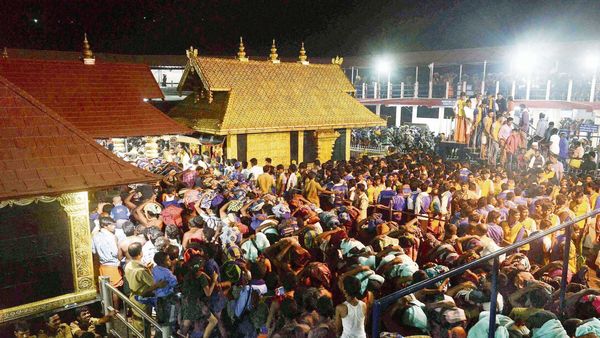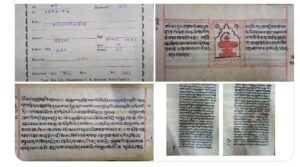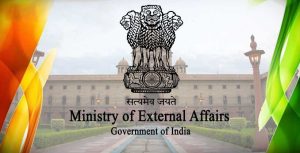New Delhi, November 14: The Supreme Court has referred the matter to a large bench to allow women of all ages to enter the Sabarimala temple in Kerala with a majority verdict. Reading the 3-2 majority verdict, the Chief Justice said that the case of women entering mosques, circumcision of Parsi women and women of Dawoodi Bohra community is also similar to the entry of women into the Sabarimala temple. The majority verdicts include Chief Justice Ranjan Gogoi, Justice AM Khanwilkar and Justice Indu Malhotra.
In a minority judgment, Justice RF Nariman and Justice DY Chandrachud said that before this petition, the case of Muslim and Parsi women has not come before the Supreme Court. On 6 February, all the reconsideration petitions were reserved by the Supreme Court. A total of 64 reconsideration petitions were filed.
On the Sabarimala case, 56 review petitions, 4 writ petitions, two transfer petitions filed by the Government of Kerala and the Travancore Devasam Board seeking time to implement the verdict were filed.
Senior advocate Mohan Parasaran had said that the court did not take into account the belief of Lord Ayyappa as celibate. Constitutional principles cannot be forcibly imposed in the case of religion. Reliable women in Ayyappa have no problem with the rule. People did not accept the decision.
The ransom had said that the Supreme Court’s decision did not take into account the interrelationship between the Preamble to the Constitution and Sections 15, 17 and 25 of the Constitution. The Supreme Court did not even pay full attention to Article 15 of the Constitution. Parasaraan opposed the Supreme Court’s interpretation of Section 17 in the Sabarimala decision. Justice Nariman had asked what would happen if a 10 to 50-year-old woman from the scheduled caste enters. Therefore, do not go on that this tradition has been abolished only on the basis of untouchability.
Advocate V Giri, on behalf of the chief priest of the Sabarimala temple, had said that the right to worship is associated with the nature and form of God. The reason for the halt in Sabarimala is the character of God. He had said that none of the petitioners said that he is a worshiper or worshiper of Lord Ayyappa. The tradition of Sabarimala has no meaning with caste and the constitutional prohibition on untouchability does not apply therein.
Senior advocate Abhishek Manu Singhvi, on behalf of the Devasam Board, had said that the tradition of Sabarimala is in accordance with the character of God. In this temple, there is a God who is a natural celibate. This is only mentioned by Justice Indu Malhotra in his judgment. Singhvi had said that religion cannot be seen as a science museum. Principles of consciousness or irrationality do not apply in religious customs. He said that Hindutva is a religion with many customs. Constitutional ethics cannot be applied in this.
The Kerala government opposed the petitions, saying that the court had not made any mistake in the judgment. The decision cannot be changed due to the protests. The Travancore Devasam Board also changed the last stand saying that we have accepted the court’s decision. We are in favor of women of all ages going to the temple.
Two women who entered the Sabarimala temple had cited the social boycott that followed. On behalf of both the women, senior advocate Indira Jaising had said that God cannot discriminate on the basis of gender or age. The court verdict is correct.
On 28 September 2018, the Supreme Court ruled by a 4-1 majority. The court said that women have been discriminated against for a long time. Woman is not inferior to man. On the one hand we consider women as goddesses, on the other hand we discriminate against them. The court had said that the freedom of religious belief of women cannot be abolished due to biological and physiological reasons. Four judges, including the then Chief Justice Deepak Mishra, said that it is against the rights given under Article 25 of the Constitution. Justice Indu Malhotra ruled differently from the decision of the other four judges. He had said that the court should not interfere in matters of religious faith.





